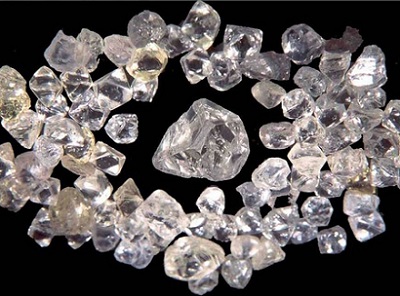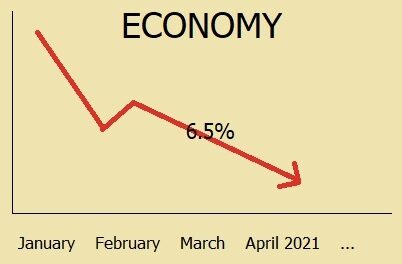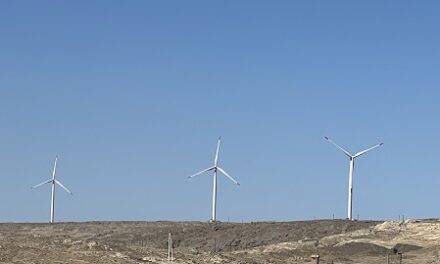
By Victor Angula |
The Southern Africa Resource Watch (SARW) has produced information indicating that there is widespread looting of the mineral resources in Namibia. In a report published in October 2020 damning evidence was produced by SARW showing that the Namibian nation is benefitting little to nothing out of its mineral resources.
In response the Chamber of Mines of Namibia hit back by claiming that the SARW report was riddled with inaccuracies, faulty assumptions and serious but unfounded allegations.
In March 2021 the Chamber produced a “media release” in which it dismissed the SARW’s report titled “The Mineral Sector of Namibia: A Nuanced Overview of Selected Aspects”.
The Chamber took issue with the section of the SARW report which deals with “illicit financial flows (IFF) and transfer pricing in the mining sector in Namibia”, such as
– the existence of illicit financial flows in the mining sector,
– the allegation of tax policy inefficiencies in Namibia,
– the high corporate tax rates,
– low royalties and export levies,
– and the windfall tax.
However in a statement released by SARW on 15 June 2021 in response to the Chamber of Mines’ protestations, SARW insists that its report is factual and therefore the Chamber is being dishonest and such conduct “raises serious questions as to which side the Chamber is on: the people of Namibia or the interests of foreign companies”.
SARW gives examples of how mining companies in Namibia have been making money without paying any tax or little at all by stating the following:
“i.) Paladin Energy avoided paying N$219 million corporation tax to the Namibian government when it sold 25 per cent of shares in its Langer Heinrich mine in Namibia for N$665 million to a Chinese company using a shelf company registered in Mauritius, a jurisdiction with a much lower (15 per cent) corporate tax rate (The Namibian of 2018-12-13).
“ii. UraMin, whose anchor project was the Trekkopje Uranium Project in Namibia, avoided paying tax to the Namibian government when it was sold to Areva for US$2.4 billion in Ontario, Canada, a jurisdiction with a much lower (26.5 per cent) corporate tax rate.
“iii.) A base metal company currently operating in the country made sure that the company that owned the processing plant is granted Export Processing Zone (EPZ) status as a condition for investing in the project. EPZ status exempts the company from paying corporation tax, yet the same company uses an unauthorised formula to calculate the value of the ore from its mining operation that is required to pay royalties. The net effect of this formula is that the company pays lower royalties in addition to other tax exemptions that it got through the EPZ status. From 2013 to the end of 2019, this company has avoided paying a total of N$455 million, and if penalties are added, the company is supposed to pay the government of Namibia N$2.9 billion as of 31 March 2021. This is excessive leveraging and unethical practice.
“iv.) A nuclear fuel company currently operating in the country has doubled its cost of producing a pound of uranium by adding costs of unrelated goods (such as rice for example), yet the uranium is sold to a sister company overseas at a price below the operational cost. The net effect of the inflated production cost is that, the operation in Namibia is run at a loss, and thus avoids paying corporation tax. What is disturbing is that at the end of the value chain, the sister company that is producing electricity from Namibian uranium is making obscene profits. A pound of enriched uranium produces about 10 400 000 kWh of electricity, and each kWh is sold at US$0.0183 to domestic consumers and US$0.103 to businesses in China. The yellowcake from operations in Namibia produces on average 960 000 pounds of enriched uranium per year for the overseas sister company that generates electricity. This gives a total average annual energy production of 9 984 000 000 000 KWh from the operation. If this is multiplied by US$0.0183 per KWh (the 5 price at which the electricity is sold to domestic consumers), the uranium from the Namibian operation is generating US$182.71 billion revenue per annum for the overseas sister company. Had the government participated and ensured that the benefits are accrued at the electricity fabrication stage of the value chain, the government would be realising (on behalf of its citizens) US$18.3 billion per year from its 10 per cent stake in the operation.
“v.) After getting obscene profits from the sale of electricity generated from the enriched uranium from the Namibian operation, the sister company advances loans at a high cost to the operation in Namibia. The net effect of these high-cost loans is that the operation will have to service the loans before corporate tax is paid, thus the operation in Namibia’s tax liability is substantially reduced now, and if prices of uranium remain at the current level this operation may never pay corporate tax, especially considering that the life of this mine is up until 2032/3.
“vi.) The research found legal but unethical practice by exploration companies that raise a substantial amount of money on stock exchanges anchored on a Namibian project, and retain the bulk of this money in jurisdictions with low corporation tax rates, depriving Namibian citizens. This practice is now referred to as “stock mining” by some people in the industry. An example was given of Reefton, a company that was listed on the ASX, that went to the length of announcing the discovery of uranium in an exploration license where it did not have the rights to the mineral.
“vii.) A precious metal company overstated the price of a grader that contributed to it getting N$1 billion tax credit.”
SARW also states that its researchers found that, of the total corporate tax paid by mining companies in Namibia of N$1.437 billion in 2019, N$1.707 billion in 2018, and N$2.130 billion in 2017, 93 per cent of the total corporate tax paid by the entire sector in 2019, 92 per cent in 2018, and 90 per cent in 2017 was paid by one company, Namdeb Holdings (SARW 2021:35).
[Omutumwa Editor’s Comment: Despite the angry reaction of the Chamber of Mines to the SARW report, media reports have long stated that for many years mining companies have paid little tax, so that the SARW’s report is likely to be correct more than the Chamber tries to say. Rather what is needed here is what the Government of Namibia’s reaction could be. Omutumwa will seek for a comment from the Ministry of Mines and Energy.]
In the photo: Namibian diamonds (photo courtesy of resourceworld.com)







